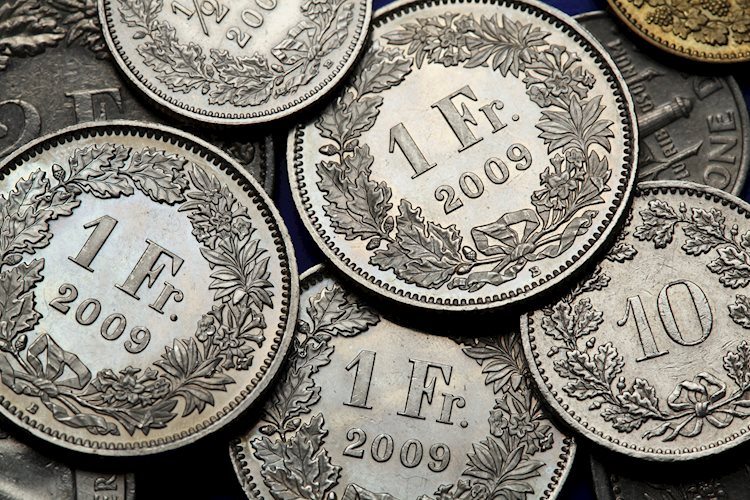- USD/CHF climbs to near 0.8770 in Monday’s early European session.
- The victory of Donald Trump in the US presidential elections provides some support to the USD.
- SNB’s Martin said the central bank had made “absolutely no commitment” to its future course of action.
The USD/CHF pair extends its upside to around 0.8770, the highest since August 1 during the early European trading hours on Monday. The upward movement of the pair is bolstered by the strength of the US Dollar (USD) as traders await the US inflation data and Federal Reserve (Fed) speakers this week.
Analysts expect that Trump’s policies would put upward pressure on US inflation and bond yields while slowing the Fed’s path to ease policy. This, in turn, lifts the Greenback against the Swiss Franc (CHF). “Given this, we still expect that the Fed will cut another 25bp at the December meeting, but thereafter will only cut once per quarter, in contrast to our previous forecast for a 25bp cut every meeting,” said JPMorgan economist Michael Feroli.
Traders will take more cues from the US Consumer Price Index (CPI), which is due on Wednesday. The headline CPI is expected to show an increase of 2.6% YoY in October, while the core CPI is estimated to show a rise of 3.3% YoY during the same period. In case of the hotter-than-expected outcome, this could further reduce the possibility of a December rate reduction, supporting the USD.
The Swiss National Bank (SNB) Vice Chairman Antoine Martin said on Monday that the central bank is not locked into more interest rate cuts in December, adding that everything will depend on conditions when we assess the situation in December. The markets anticipate the SNB to cut at least 25 basis points (bps) from the current 1% level at its next meeting on December 12.
Swiss Franc FAQs
The Swiss Franc (CHF) is Switzerland’s official currency. It is among the top ten most traded currencies globally, reaching volumes that well exceed the size of the Swiss economy. Its value is determined by the broad market sentiment, the country’s economic health or action taken by the Swiss National Bank (SNB), among other factors. Between 2011 and 2015, the Swiss Franc was pegged to the Euro (EUR). The peg was abruptly removed, resulting in a more than 20% increase in the Franc’s value, causing a turmoil in markets. Even though the peg isn’t in force anymore, CHF fortunes tend to be highly correlated with the Euro ones due to the high dependency of the Swiss economy on the neighboring Eurozone.
The Swiss Franc (CHF) is considered a safe-haven asset, or a currency that investors tend to buy in times of market stress. This is due to the perceived status of Switzerland in the world: a stable economy, a strong export sector, big central bank reserves or a longstanding political stance towards neutrality in global conflicts make the country’s currency a good choice for investors fleeing from risks. Turbulent times are likely to strengthen CHF value against other currencies that are seen as more risky to invest in.
The Swiss National Bank (SNB) meets four times a year – once every quarter, less than other major central banks – to decide on monetary policy. The bank aims for an annual inflation rate of less than 2%. When inflation is above target or forecasted to be above target in the foreseeable future, the bank will attempt to tame price growth by raising its policy rate. Higher interest rates are generally positive for the Swiss Franc (CHF) as they lead to higher yields, making the country a more attractive place for investors. On the contrary, lower interest rates tend to weaken CHF.
Macroeconomic data releases in Switzerland are key to assessing the state of the economy and can impact the Swiss Franc’s (CHF) valuation. The Swiss economy is broadly stable, but any sudden change in economic growth, inflation, current account or the central bank’s currency reserves have the potential to trigger moves in CHF. Generally, high economic growth, low unemployment and high confidence are good for CHF. Conversely, if economic data points to weakening momentum, CHF is likely to depreciate.
As a small and open economy, Switzerland is heavily dependent on the health of the neighboring Eurozone economies. The broader European Union is Switzerland’s main economic partner and a key political ally, so macroeconomic and monetary policy stability in the Eurozone is essential for Switzerland and, thus, for the Swiss Franc (CHF). With such dependency, some models suggest that the correlation between the fortunes of the Euro (EUR) and the CHF is more than 90%, or close to perfect.
Read the full article here

